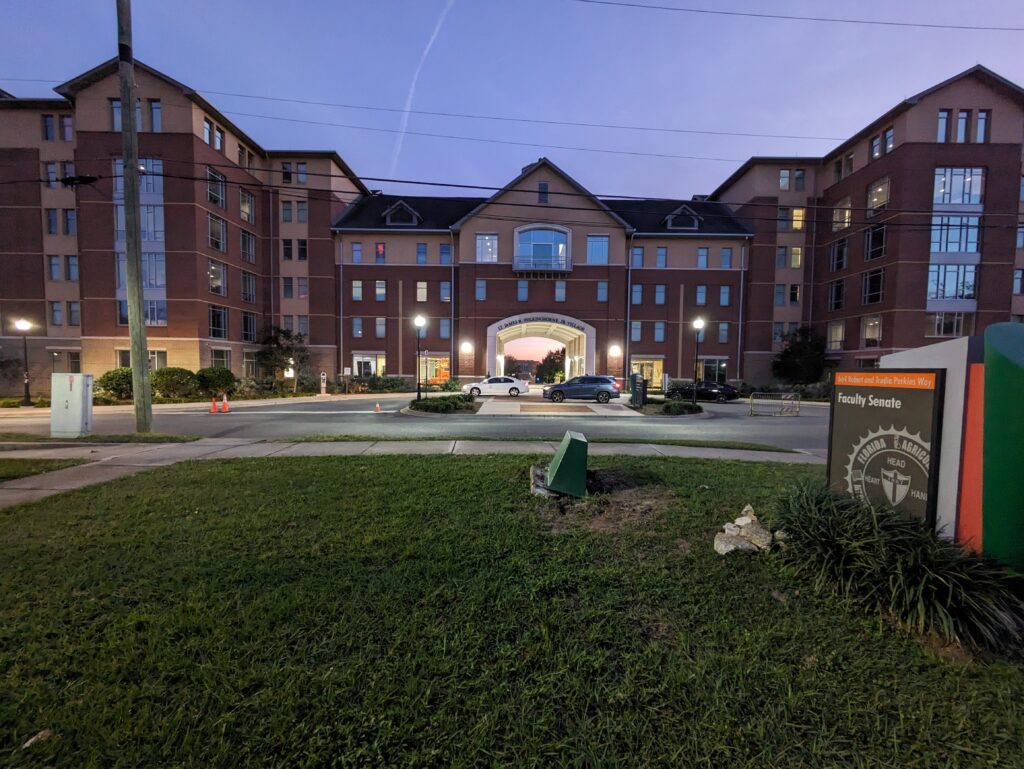Tatyanna McCray is a former fellow with the HBCU Student Journalism Network, a project of Open Campus. A version of this story was previously published by Open Campus.
Room for growth
FAMU’s steady growth pushes for more quality student housing, an issue that affects HBCU students across the nation. As the only public HBCU in the state of Florida, FAMU is financially funded by the state government. However, FAMU has remained continuously underfunded, prompting students to speak out, and also file a lawsuit against the state of Florida as a result. Several students believe that the underfunding is based on specific racial biases. More students at other public HBCUs have begun filing lawsuits against the state of their respective HBCU location because of the underfunding. The lack of housing coupled with the conditions of student living has raised concerns not only for the students but for parents as well.
“Due to the miscommunication between administrators and students, I winded up with a housing option that was not my first choice,” Christian Owusu, a junior and business management scholar from Los Angeles shared how stressful it was dealing with securing housing on campus stating.
“By the time I had realized I could not make any changes I was already locked into my lease, which is not easy to break away from after signing. I wish I would have known more about how the paperwork process works,” Owusu said.
Most university housing offices inform students leading up to the housing portal opening, and thereafter all housing options are first come, first served. This prompts many students to be early and prepared to register for their housing early. However, even as students are making sure to register early, there are still issues with payments, finding placement, and off-campus options.
Several students have shared their disappointment after learning their spots were not secured, even after completing their applications and paying their fees. Ultimately, this leaves many students without residency on campus further leading to issues concerning transportation or scrambling to find decent residency for the upcoming semester.
Campus to Campus, students are fed up
“When I first got to NCAT I was not aware of the housing issues here,” Etianna Cineus, a fashion merchandising major attending North Carolina Agricultural & Technical State University shared.
“As the years passed and more students came and went, housing became more of an issue…the units can be a hit or miss though. I know some people who’ve moved into nasty apartments that were not clean beforehand,” Cineus said.
Due to the increase in enrollment at HBCUs, there is a dire need for more housing to be available to accommodate the growing student body and supply better living conditions.
Dormitories on FAMU’s campus and other HBCUs alike have been torn down because of a lack of funding to continue the upkeep or get the needed renovations. Gibbs Hall was recently demolished after being permanently closed in 2019 because of internal structural issues.
Dria Roland, an alumnus of the School of Journalism and Graphic Communication shared the problems she faced upon moving in explaining “I never experienced housing issues, but the condition of the housing was not the best, it was not as clean or up to date as other dorms I had seen.”
In recent years, FAMU’s students have shared their problems with on-campus housing including pest infestation, mold and plumbing issues. Students feel the price for on and off-campus housing should match up with the amenities provided. More often than not, appliances are not always up to date, things may be broken upon moving in, and there’s the actual reality of the living environment versus what is shown online and during walk-through tours. Students are becoming more vocal with requests and clarification on what it takes to live comfortably as college students.
When asked what changes the university could make, Owusu suggested better communication on deadlines and rectifying issues before it’s too late.
Cineus, the NCAT student mentioned, “I’d like for A&T to create more reasonable housing options for students in need of them.”
Students remain hopeful that as changes are being made, the housing shortage will become a distant memory. Funding is needed to make the changes students deserve, and public HBCUs continue to call out state governments to award fair funding to public HBCUs as their counterparts are typically well-endowed financially.
The U.S. government has also interceded the discussion to prompt change among several HBCUs in various states. To remedy this ongoing issue, FAMU has recently announced plans to build more student housing complexes to accommodate the growing student body.













